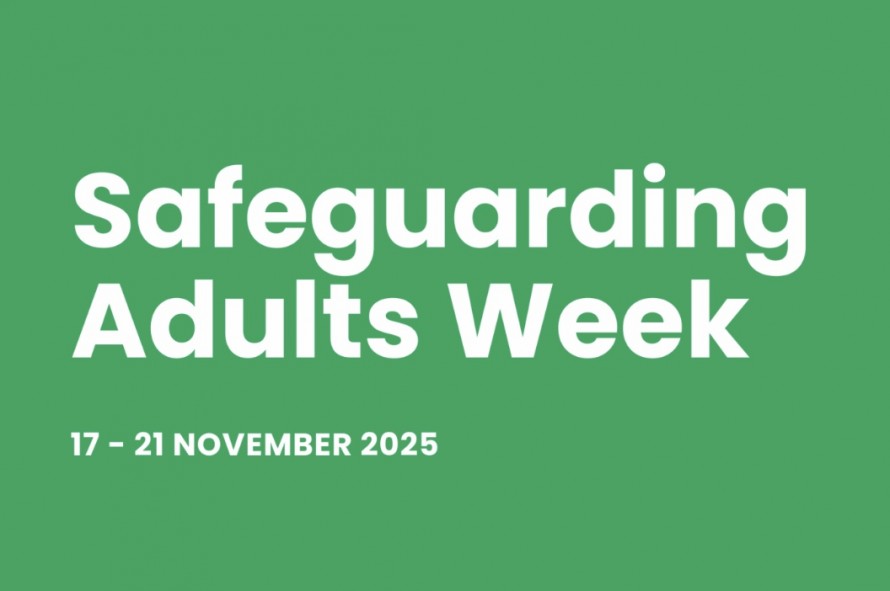


Safeguarding adults isn’t only about responding when someone is already experiencing abuse or neglect. It’s equally about building environments where harm is less likely to happen at all. We all share the responsibility of keeping one another safe.
One powerful way to do this is by being an active bystander, paying attention to how those around us are feeling and being treated, and taking safe action when something doesn’t feel right.
Being an active bystander might mean noticing if someone appears controlled, disrespected, pressured into something they don’t want to do, or suddenly anxious or withdrawn. If something raises concern, the most important thing is not to walk away.
Abuse and harm can often be hidden. Many adults may be unable or afraid to speak up. They might worry they won’t be believed or rely on the very person causing the harm. This is why having others notice and act can change everything.
Active bystanders can make a difference in lots of ways, including:
• Stepping in - checking on someone who looks uncomfortable or questioning behaviour that feels inappropriate
• Creating a distraction - helping diffuse a tense situation with a change of focus
• Asking for support - contacting a manager, safeguarding lead, or, if the person of concern consents, local adult social care services
• Following up later - privately checking on someone to see if they are okay, and offering support while respecting confidentiality and their choices
• Recording concerns - noting what you’ve seen so issues can be addressed properly
These seemingly small actions show people that they matter, they are seen, heard, and not alone.
Being an Active Bystander and Adult Safeguarding work together. Safeguarding provides the guidance, structure, and reporting routes for long-term protection. Active bystander approaches empower people to respond in the moment when something feels wrong. Combined, they help ensure concerns are recognised early and that everyone understands they have a role to play in preventing harm, not just safeguarding professionals.
When we all look out for each other, safeguarding becomes a shared culture. Harmful behaviour is spotted sooner, people feel more confident to speak up, and safety and wellbeing are strengthened across communities.
Active bystanders don’t need to be heroes; often, simple acts of kindness and curiosity can make the biggest difference.
Safeguarding adults is about protecting an individual’s right to live safely, free from abuse and neglect. It means preventing harm wherever possible and supporting wellbeing, always respecting the adult’s wishes, views and beliefs in any decision.
Active bystander action should always align with your organisation’s safeguarding policies and procedures, ensuring concerns are handled through the correct channels and that every adult receives the right support.
Kayleigh Jackson, Head of Community, Engagement & Safeguarding at Tigers Trust and Board member at Active Humber, said:
"Safeguarding is a shared responsibility, and prevention is at the heart of it. At Tigers Trust, I’ve worked within a Youth and Community setting for over 14 years, providing safe spaces and a sense of belonging where individuals are championed and supported through tailored development opportunities.
"My current role focuses on creating safe, inclusive environments from a strategic level while still remaining hands-on as the Lead Designated Safeguarding Officer on match days, helping to safeguard children, young people, and adults at risk. Working proactively to build trust, identify early signs of at-risk factors, and empower communities through sport and outreach.
"I’m proud to now bring that perspective to the Board at Active Humber, where safeguarding is embedded across physical activity and sport. It’s a privilege to contribute to strategic conversations that prioritise prevention and ensure safeguarding is not just a policy but a culture. Adults Safeguarding Week is a powerful opportunity to highlight the importance of leadership in safeguarding, and I’m honoured to be part of that journey across the Humber."
David Gent, our CEO at Active Humber, explains his appreciation for our board members: "We all want to play sport and do physical activity in a place where we feel safe and secure and can enjoy that experience with others. That is why at Active Humber in all that we do at a board and operational level we make sure we are creating and sustaining those safe and secure places to play and stopping the negative behaviours and cultures that prevent that happening. It is vital at the board level to have a director which is there support the other directors, but all make sure what is discussed and planned is inclusive for all. The role of Welfare and Safety Director helps us achieve that aim, it is a vital role in all we do."
Active Humber can help your organisation promote active bystander behaviour. Our Active Bystander Training equips staff and volunteers to recognise risks, respond confidently, and foster safer environments.
If you’d like to learn more, please get in touch: msmith@activehumber.co.uk
Kayleigh Jackson
Head of Community, Engagement & Safeguarding at Tigers Trust and Board member at Active Humber
Kayleigh Jackson
Head of Community, Engagement & Safeguarding at Tigers Trust and Board member at Active Humber
Mary Smith
Sport Welfare Officer at Active Humber
Mary Smith
Sport Welfare Officer at Active Humber